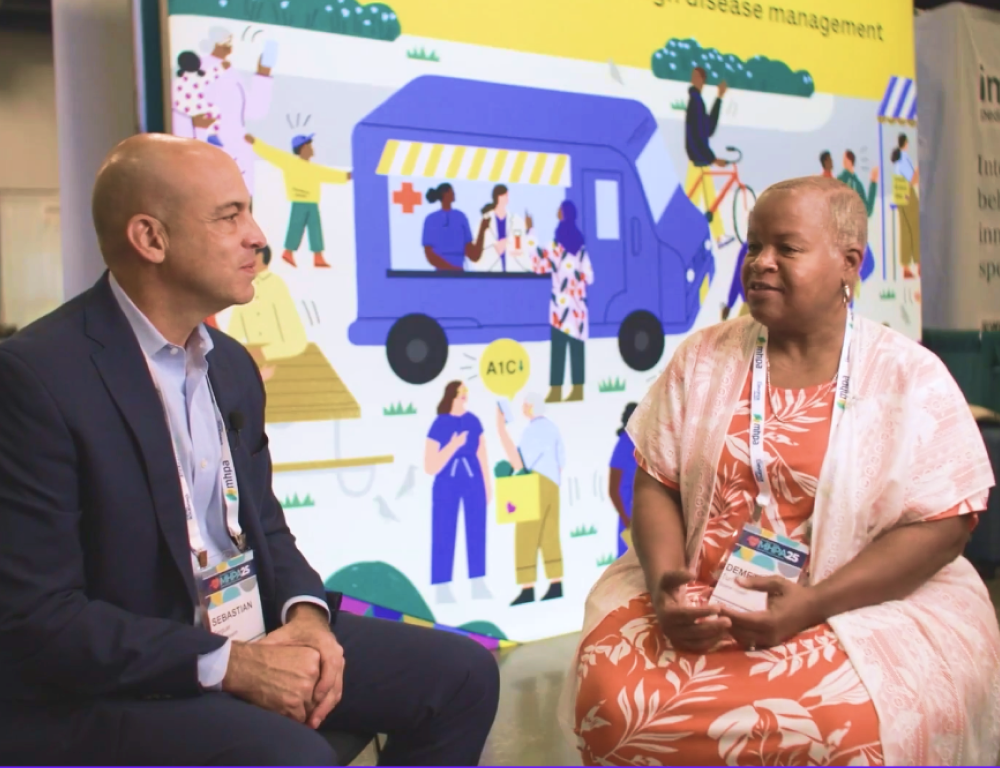Innovative Virtual Care Initiatives: Leveraging Telehealth, Remote Care Delivery, and Hybrid In-Person Care Models to Improve Access, Outcomes, and Affordability | 2023 Medicaid Innovations Forum
.jpg)
Virtual care has become a cornerstone of healthcare delivery in 2023.
As Sharon Colaizzi, Corporate Director, Population Health Program Management at AmeriHealth Caritas, said, “You can’t put the toothpaste back in the tube… members are starting to catch on, and we can tell they like the virtual and video visits.”
During the 2023 Medication Innovations Forum, our CEO, Sebastian Seiguer, joined a panel on virtual care initiatives improving access, outcomes, and affordability.
The discussion highlighted how much the world has changed since the COVID pandemic and underscored that we are not returning to the old way of doing things.
Joining Sebastian on the panel was, Jacki Porter, Associate Director, Clinical Operations at United Healthcare, Dorthy K. Young, Chief Health Data, Operations and Research Officer, Mississippi State Department of Health, Sharon Colaizzi Corporate Director, Population Health Program Management, AmeriHealth Caritas, and Carmen Fusselman, Sr. VP Clinical Operations, Custom Health. The panel was moderated by Adimika Arthur, Executive Director, Health Tech 4 Medicaid.
While the panel hit on many aspects of the virtual care conversation, these were our three key takeaways from the discussion:
1. Patients are finding value in innovative solutions and demanding more ways to connect with their care teams:
“We are continuing to roll out pilots with Scene to work on kids who have asthma and use inhalers. Are they using them correctly and at the correct time? Back-and-forth videos really improve the engagement. The kids enjoy getting a video back, getting a text message back, and being able to send the messages on their own.” - Jacki Porter, United Healthcare
“Younger generations are more digitally focused… We are looking at expanding our remote, digital capabilities… We have a hybrid model approach to care management with some virtual vendors that provide virtual visits, RPM, care coordinators in the field, and a multitude of approaches we engage with.” - Sharon Colaizzi, AmeriHealth Caritas.
2. Outcomes matter, but not just clinical or quality outcomes:
“A lot of times, we only think about clinical outcomes, not just the outcome that somebody was able to reach us. Over 80% of our appointments were self-scheduled during COVID. Technology can allow you to look at things like patient throughput and accessibility.” - Dorthy K. Young, Mississippi State Department of Health
3. Virtual care can be the foot in the door that leads to better reporting and upstream prevention.
“Today, we engage with patients in a way that is personal. As you open that door, you go upstream from adherence only to: “go test your A1C.” This led to our biggest initiative, which is to capture patient-reported outcomes data because claims data is lacking. Our customers want a health outcome, as do the patients. Self-reported data is a great way to close the data gap.” - Sebastian Seiguer, CEO & Co-Founder, Scene Health
Looking Ahead
We left the panel encouraged by the impact virtual care is having on patients, health plans, and public health departments. The potential for further expansion and innovation in care delivery has never been more tremendous, and the appetite for this kind of care availability is only growing. We believe our work will continue to meet that need, and as Sharon Colaizzi said, “You can’t put the toothpaste back in the tube…”




Download the Insights into Medication Challenges in Populations with Low Incomes: The Scene Medication Survey

Download the Insights into Medication Challenges in Populations with Low Incomes: The Scene Medication Survey







.jpg)

.png)
